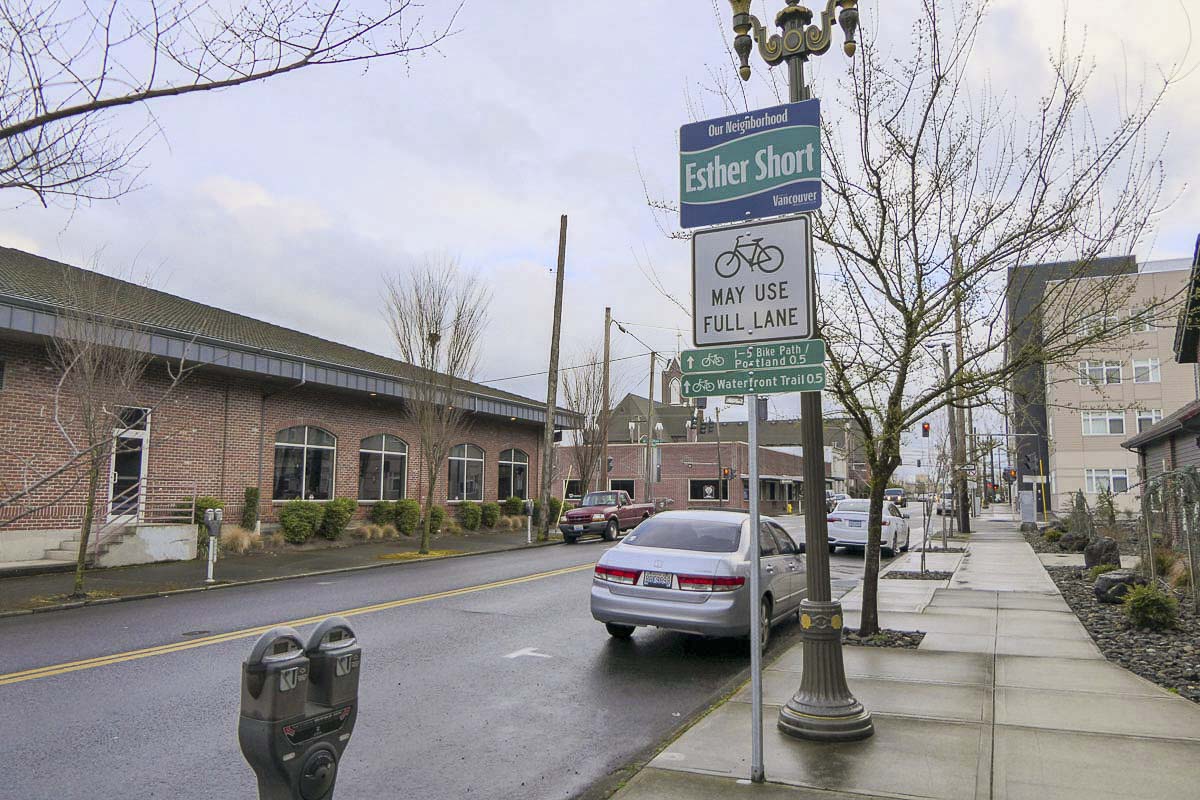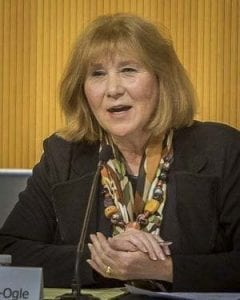Members of the City Council accept a proposal from staff on budget cuts, deferment of projects
VANCOUVER — The city of Vancouver continues to address a projected $45 million budget shortfall for 2020 as a result of the economic impact of Washington Gov. Jay Inslee’s “Stay Home, Stay Healthy’’ order. More of the details of the city’s plans for budget cuts were shared during Monday’s virtual meeting of the Vancouver City Council.

In a presentation made to members of the council by City Manager Eric Holmes, Chief Financial Officer Natasha Ramras and Streets and Transportation Manager Ryan Lopossa, the staff members revealed the city’s assumptions for the rest of 2020 and beyond. Those assumptions included:
• Anticipated duration of the “stay at home” closures to remain in place for an estimated 4-6 months time period, followed by economic recession through the remaining months of the year and, likely, into 2021.
• The main impact is anticipated on economy and housing-dependent revenues; including sales tax, Real Estate Excise Tax, recreation and land use revenues and Business License Fee and surcharge.
• Additional impact likely will result in increases in non-payment rates: a 10 percent revenue loss in utility revenues.
• Additional delays in payments due to an increased rate of foreclosures and government authorized delays in payments will create additional cash flow issues.
The city is preparing to address the $45 million shortfall in 2020 in the General Fund by utilizing a combination of reliance on existing reserves, suspension of transfers funding equipment replacement, pay-as-you-go capital and asset replacement as well as departmental reductions. Specifically, the total amount coming from existing reserves is $15 million; suspension of transfers will account for $17 million and departmental reductions will make up the remaining $13 million.
“We have implemented some operational changes that are less visible to the general public,’’ Holmes told the council members. “We do have a portion of our workforce that is going on a full furlough, not working at all during the next month. About 60 city of Vancouver employees are on that status. That’s in addition to the partial furlough and wage reduction that about 30 percent of our workforce is taking, effective May 1 and through the end of 2020. And, there may be additional potential furloughs that are necessitated by a lack of work or budget reduction measures that are in development as I’m working with department heads.
“This is a pretty unique circumstance as we look at how it impacts city operations,’’ Holmes added. “Typically, when we have an economic downturn, our consideration is purely do we have the revenues to support the service? In this case, we may have revenue but because of the ‘Stay Home, Stay Healthy’ order, or other orders from the governor, we may not have work for the employees to do.’’
The city manager said an example of that can be found in the city’s Community Recreation Centers, which are currently closed to the public consistent with the governor’s order. Those city employees are on full furloughs.
“The city is trying to manage the fiscal response in a way that really tries to anticipate the full brunt of the negative impact to our revenues as early as possible in a way that also allows us to maximize access to outside resources, such as the enhanced unemployment benefits that are available through employment security to get employees in a position where they can access those benefits in a way that minimizes the negative impact on their household,’’ Holmes said.
Holmes added, those city employees who are currently on furlough are able to access those unemployment benefits but the city is maintaining their healthcare benefits during the time they are on furlough.
The city is still awaiting data that reveals the economic impact of federal and state stay-at-home orders during the month of April. Monday’s presentation to council members included the March data, which showed consumer spending, which makes up 68 percent of the economy, was down 7.5 percent in March. It is anticipated that number will be significantly higher for April.
The city presentation indicated the March unemployment rate in Clark County was 4.3 percent. It was 4.4 percent nationally. The city’s projection is that the unemployment rate for April is anticipated to be in the low 30 percent numbers.
Several council members weighed in on Monday’s presentation. Councilor Erik Paulsen called the city’s economic modeling “conservative.’’ Councilor Bart Hansen said he was “more concerned about years two and three,’’ implying 2021 and 2022 could include even greater shortfalls to the county budget.
Councilor Sarah Fox asked Holmes about the wisdom of the city moving to an annual budget rather than a biennial budget. Holmes indicated the city was bound by its charter to produce a biennial budget but Ramras said adjustments necessitated by the unique circumstances could be addressed in the form of a supplemental budget.
Capital projects/transportation revenue shortfall
A great deal of discussion by members of the council Monday night surrounded specific capital projects that were proposed by city staff to be allowed to continue and which were to be deferred to future years.
The staff report indicated that all “capital projects are being scrutinized and prioritized using a combination of the following criteria:
• Status of the project, including contractual obligations, if any
• Existing grant funding and timing restrictions, if any
• Short and long term cost-benefit considerations
• Timing and operational impact
The original approved 2020 budget included $37 million in transportation revenue. The staff report indicated that approval of I-976 resulted in $5.9 million in anticipated revenue reduction. The COVID-19 revenue shortfall will result in a $7.9 million revenue reduction, primarily due to projected revenue shortfalls from the State Motor Vehicle Fuel Tax, Real Estate Excise Tax, and City Business License Surcharge.
The staff proposed the following projects would continue in 2020, largely because most were tied to grant funding already in place according to Holmes:
• Mill Plain Blvd (104th to Chkalov)
• SE 1st Street (164th Ave to 177th Ave
• NE 137th Ave (49th St to Fourth Plain)
• LED Streetlight Retrofit
• NE 18th St (97th Ave to 107th Ave)
• NE 112th Ave Sidewalks Expenditures
• Jefferson St (Evergreen to Mill Plain)
• Hearthwood/SE 1st St Traffic Signal
• Mill Plain Arrival on Green
• SE Tech Center Drive Bike Lanes
• Devine Road Ped Improvements
• Mill Plain/MacArthur Complete Street
A total of $3 million was proposed to be cut from the capital project budget by deferring the following projects:
• Transportation Systems Plan Update
• Traffic Sustainability Project
• Columbia/13th Street Signal
• Non-Programmed Safety
• 2019 Traffic Calming Project
• 2020 Traffic Calming Project
Another $4.9 million was proposed to be cut from the city’s operating budget by deferring these projects:
• 2020 Pavement Resurfacing Project
• West Curb Ramp Project
• Temporary Employees Expenditures
• Professional & Contracted Services
• Overtime Pay
• Operating Supplies
Columbia Street improvements

The council members were split on the proposed deferral of the Columbia Street project, which included $1.65 million in planned improvements for 2020. Council members Ty Stober, Linda Glover and Laurie Lebowsky and Mayor Anne McEnerny-Ogle were passionate in their defense for the proposed work on Columbia Street in 2020. The discussion moved to a proposal to complete $900,000 of the 2020 planned improvements for the street in lieu of slurry seal surface treatment to 48 miles of single lane streets in other parts of the city.
While they also considered it a high priority to make improvements to Columbia Street, which Lopossa said was currently in “failed’’ status, councilors Hansen, Paulsen and Fox argued for the preservation work on the other city street assets rather than the improvements to what amounted to about 18 blocks of Columbia Street. When the vote was taken, Mayor McEnerny-Ogle agreed with the staff’s proposal to defer the work on Columbia Street.
“I am so sorry that this happened, but that is what we will be faced with,’’ McEnerny-Ogle said after the 4-3 vote was completed.
When she made her own vote, the mayor said, “this is not a decision I thought I would be making tonight. I really wanted to look at Columbia Street in phases … I wanted to start Columbia Street. I wanted to get it started and start making a change. When I look at this list of 48 lane miles, 24 miles of two lanes on a street, that’s a lot of assets. It’s our old policy to preserve our assets. So, I will vote against this in a very hard way. I very much wanted to move forward on Columbia Street, but I can not take away 48 lane miles across this city to preserve our assets because I don’t know what our revenue is going to be.’’
Holmes indicated the discussion of the budget shortfall would continue during the council’s virtual meeting scheduled for Mon., May 18.




